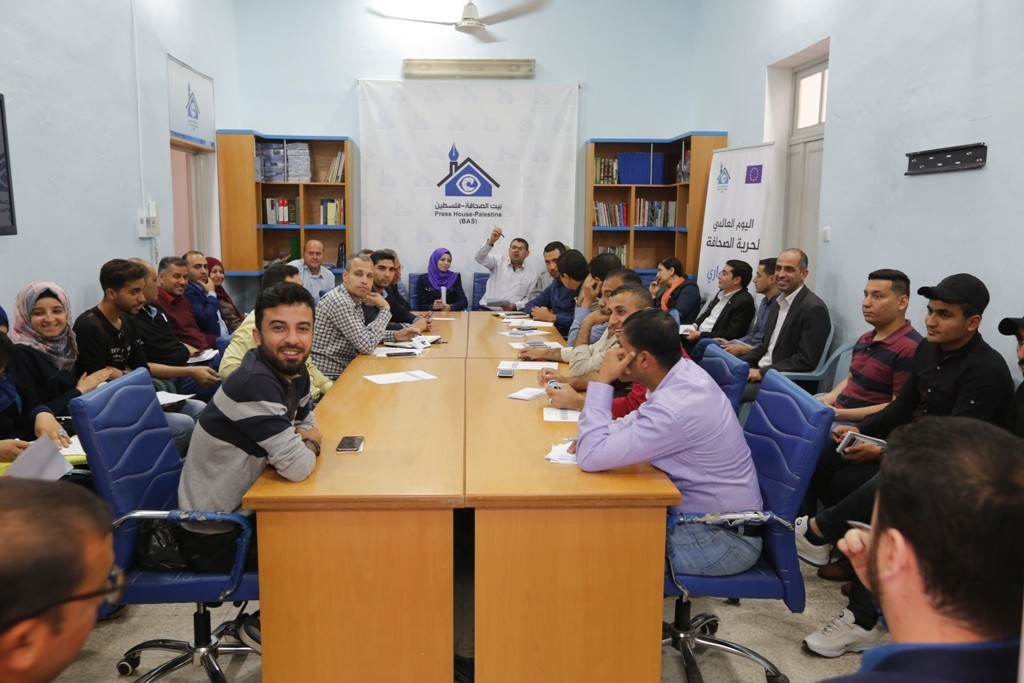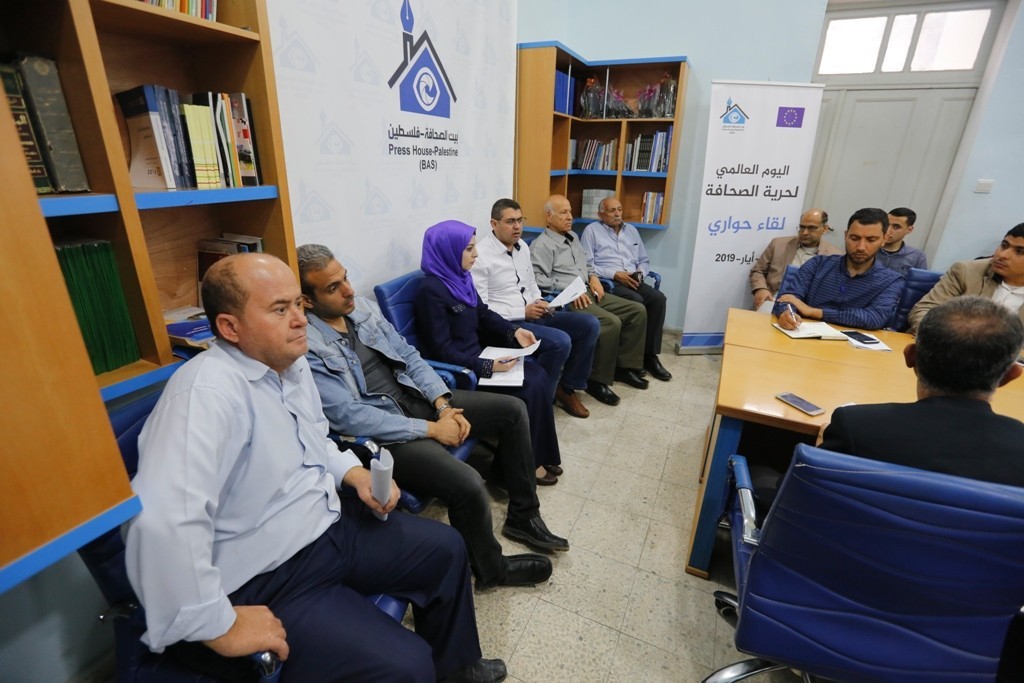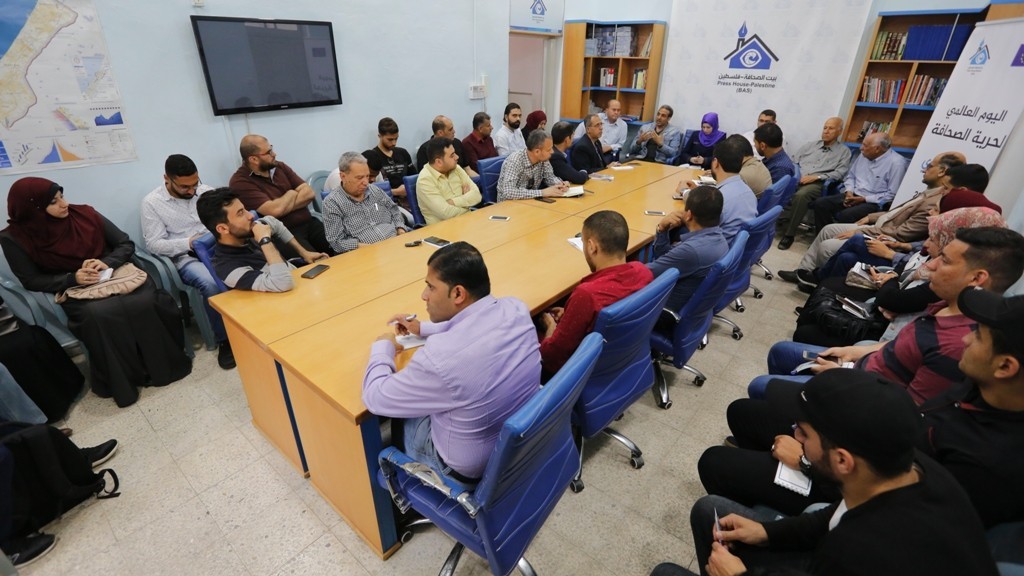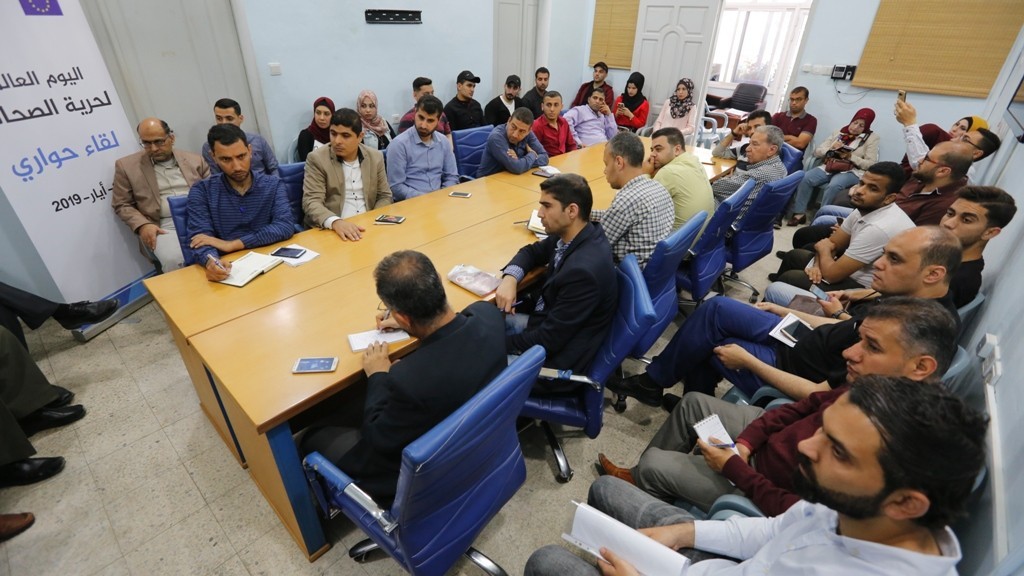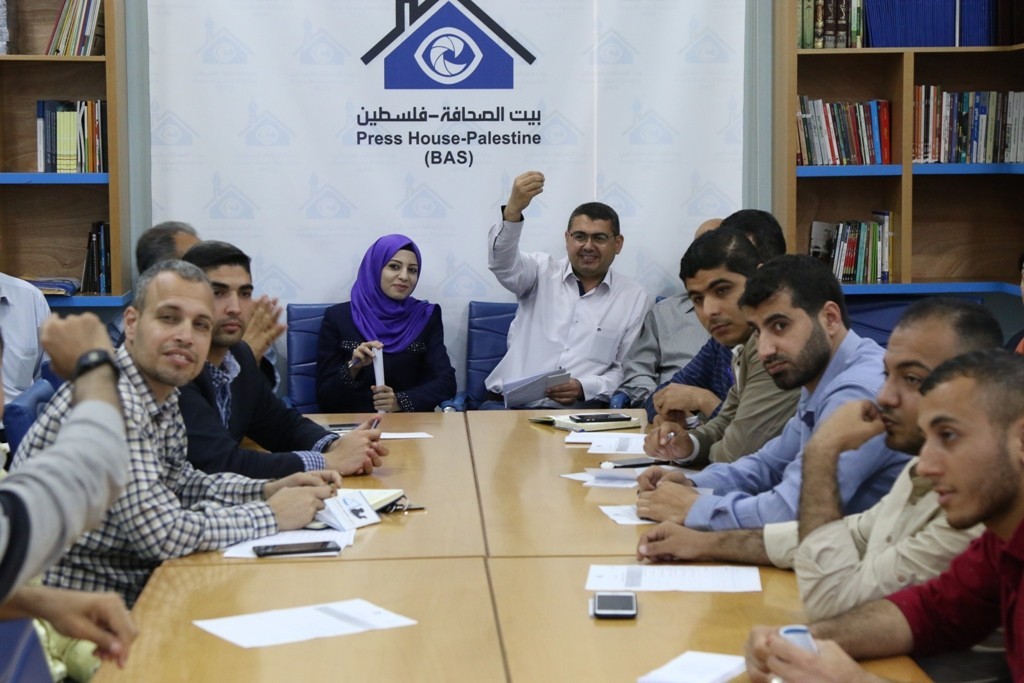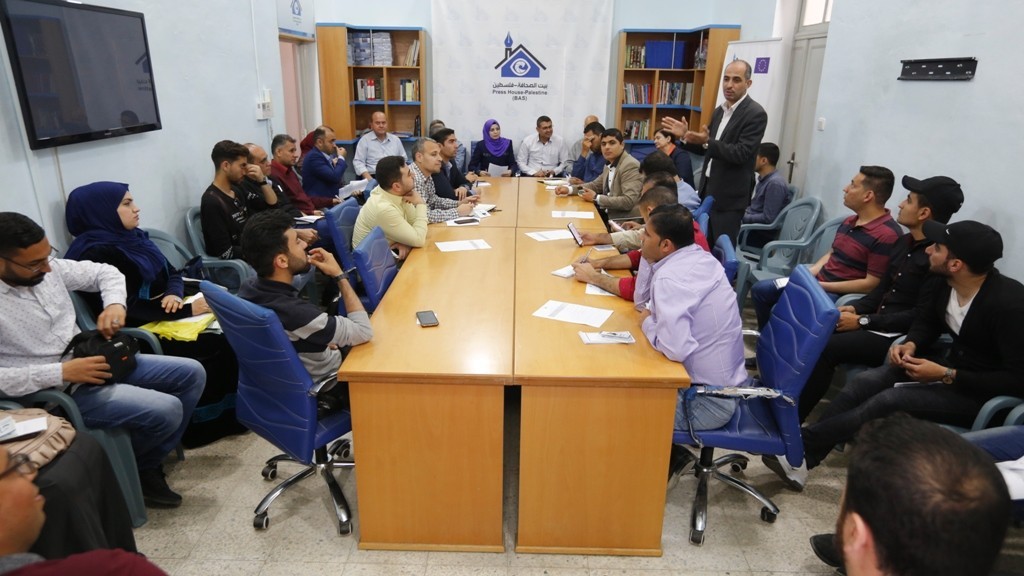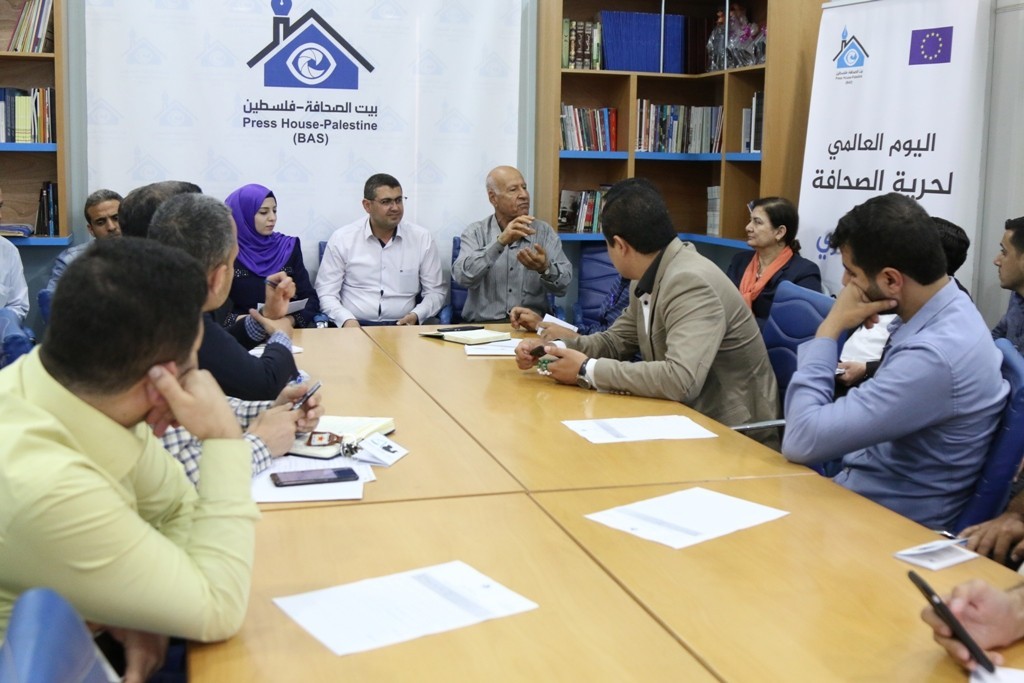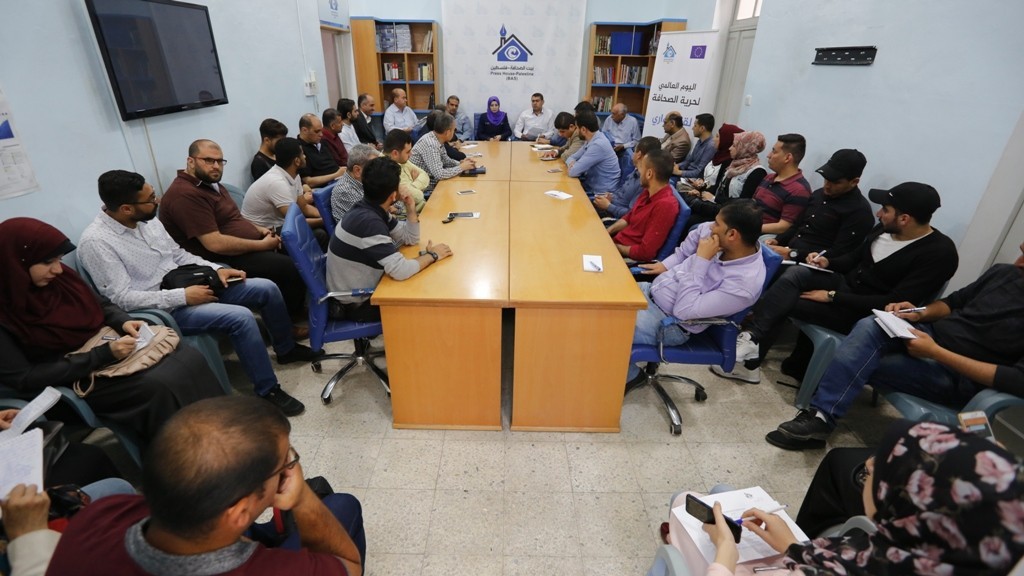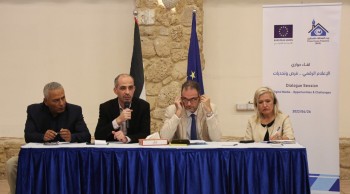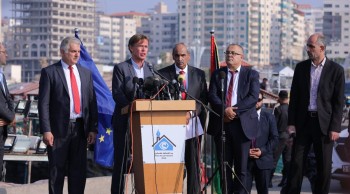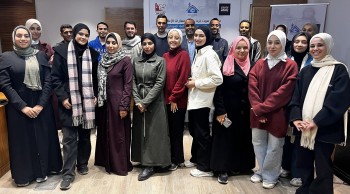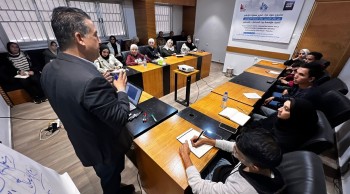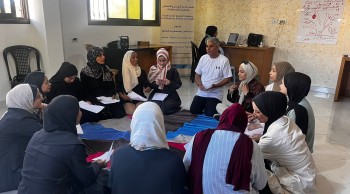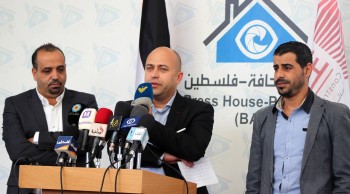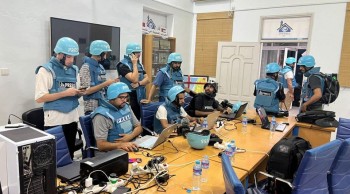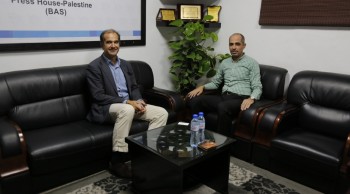On Monday, The EU organized a dialogue discussion, in corporation with the Press House, on the sideline of the World Press Freedom Day.
The meeting included several areas of the reality of press freedoms in Palestine and in the Gaza Strip in particular, violations by the Israeli occupation against Palestinian journalists, self-censorship, the right of access to information and the freedom of the press.
In his speech, side events, the member of the General Secretariat of the Palestinian Journalists’ Syndicate Rami Al-Sharafi talked about violations of the journalist by the Israeli occupation and the security actors, both in the West Bank or in the Gaza Strip.
The Syndicate recorded 43 cases of arrests of Palestinian journalists, including 25 of captured journalists, noting that recently 54 journalists were arrested on Sunday in the Jordan Valley and were not released nor their equipment.
He condemned the attempts of the security actors in the West Bank and Gaza to silence the voices of journalists and the fear of journalists from recording these internal violations at the syndicate in Gaza.
For his part, The researcher at the Palestinian Center for Human Rights Mohammed Abu Hashim said that the law of free access to information is one of the rights associated with freedom of opinion and expression. Where the state is responsible for preservation and dissemination of information in a proactive manner to the public and to be fully cooperated in case of requesting information.
According to Abu Hashim, the journalists in Gaza are the most vulnerable to internal violations by the security actors, which impose severe restrictions on the freedom of practicing their work, such as photographing and forcing journalists to issue governmental cards, stressing that the request on issuing these cards have not been officially denied yet.
In turn, the writer and analyst Tawfiq Abu Shumer stressed the importance of the role of the media in exposing the violations and the need to activate the law of the intellectual property preservation, saying that the media submission follows a political agenda that must be rearranged
For his part, Media Professor Ahmad Hammad addressed the violations against journalists at all levels, condemning the exposure of the security bodies to journalists during coverage of the people’s movement in Gaza. He also condemned the attack on journalists in the West Bank, especially in Hebron, Nablus and Ramallah against a backdrop of cutting salaries for some staff.\
Hammad referred to some of the sanctions imposed by the occupation forces against West Bank journalists such as withdrawing authorization, citing the targeting of TV channels such as the destruction of al-Aqsa TV, the bombing of the Al-Meshal Center and Abdullah Al-Hourani Center, besides other media and cultural institutions in the Gaza Strip.
He pointed to some ongoing violations of the occupation against journalists such as the ordering house arrest and administrative detention, noting the difficulty of mobility between the occupied West Bank and the Gaza Strip.
In her speech, Majida al-Belbisi said that many journalists were directly threatened due to the investigation they were working on, and the non- challenging environment makes the journalist distance itself away from when conducting press investigative, indicating that our media message is far from professional, so we do not influence the world nor the world affects us.
Majeda continued: "Media needs a protective law and a fertile environment that helps liberate freedoms and expose all corrupt cases, and also needs a full integrated media council," saying, " The access to information is a real disaster for journalists, where the law lacks access to information, in which I believe if it was available for everyone, then we can have an influential media that be influenced to convey the message professionally. "
At the closing, the meeting recommended that Palestinian journalists should be informed of all their rights, the restrictions imposed on them, and the most important obstacles facing press freedoms, through training and distributing a handbook to journalists immediately after graduation.
It also called for the importance of working to stop violations against journalists and press institutions through the unity of the Palestinian press body on a professional basis, and to monitor, report and expose these violations.
The meeting speakers recommended working on to set up a high media council, a protective law and a fertile environment that will help to unleash journalists.
At the end of the meeting, the attendance called on to hold a dialogue that brings institutions and media frameworks together to discuss the elections issue of the Journalists Syndicate, which is considered the union body for all Palestinian journalists.
